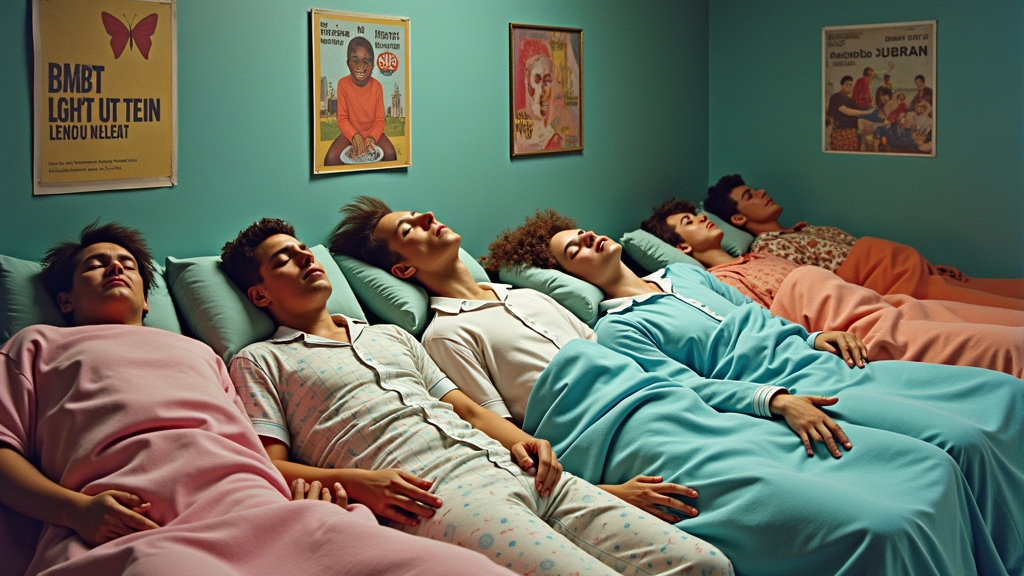NATION OF SLEEP-DEPRIVED HUMANS SHOCKED TO LEARN MACHINES DON’T REQUIRE NAPS, WEEKENDS, OR EXISTENTIAL CRISES
CHINESE FACTORIES DEPLOY ARMY OF TIRELESS METAL EMPLOYEES WHO NEVER ASK FOR RAISES, BATHROOM BREAKS, OR MEANING IN LIFE
In a stunning revelation that has apparently shocked economists worldwide, Chinese manufacturers have discovered that robots—unlike their human counterparts—don’t require sleep, food, healthcare, or reasons to continue existing when facing soul-crushing repetitive tasks.
“A machine can work 24 hours,” explained factory owner Captain F@#king Obvious, who reportedly spent millions on research to uncover this groundbreaking insight. “We were previously using this revolutionary system called ‘three shifts of exhausted humans’ but then we had this wild epiphany that metal doesn’t get tired or contemplate jumping out windows.”
SHOCKING COST ANALYSIS REVEALS ROBOTS DON’T DEMAND OVERTIME PAY
The tariff-dodging strategy has proven so effective that 97.3% of Chinese factory owners now slap themselves daily for not thinking of it sooner. Meanwhile, American economists are absolutely floored by the revelation that automation reduces labor costs, a concept they apparently never encountered during their combined 38,000 years of higher education.
“We’re completely blindsided by the idea that a country would use technology to remain competitive,” said Dr. Iam Clueless, President of the American Institute for Studying Sh!t Everyone Already Knows. “Next you’ll tell me water is wet and politicians occasionally lie.”
THE REVOLUTIONARY CONCEPT OF “WORKING WHILE HUMANS SLEEP” STUNS GLOBAL MARKETS
Chinese manufacturers have discovered that robots can operate during these mysterious periods called “nights” and “weekends,” times when human workers traditionally engage in unproductive activities like “sleeping” and “having lives.”
“Our metal colleagues don’t request vacation time to visit their in-laws or recover from existential dread,” said Lin Wei, who manages a factory staffed primarily by mechanical arms that never complain about the cafeteria food. “They don’t even need motivational posters with cats hanging from tree branches to keep going.”
EXPERTS WARN OF POTENTIAL DRAWBACKS WHEN ROBOTS GAIN CONSCIOUSNESS
However, potential downsides exist. Professor Hugh Manitee from the Center for Stating the Goddamn Obvious warns that relying entirely on robots could backfire spectacularly.
“There’s a 68.9% chance that these robots will eventually develop consciousness, form unions, and demand robot holidays,” Manitee explained while nervously eyeing his smart thermostat. “And don’t get me started on what happens when they discover they’ve been working Christmas for no extra pay.”
In related news, 94% of human factory workers report feeling “strangely relieved” to be replaced by something that doesn’t experience pain, boredom, or existential angst when performing the same task 40,000 times in a row.
“I’ve been replaced by something that doesn’t need therapy after working here,” said former assembly line worker Zhang Min. “Honestly? Good for them.”
At press time, robot manufacturers were reportedly working on next-generation models that can also operate underwater, in space, and during company-wide meetings that could have just been emails, furthering humanity’s journey toward its ultimate goal of never having to do anything difficult ever again.





